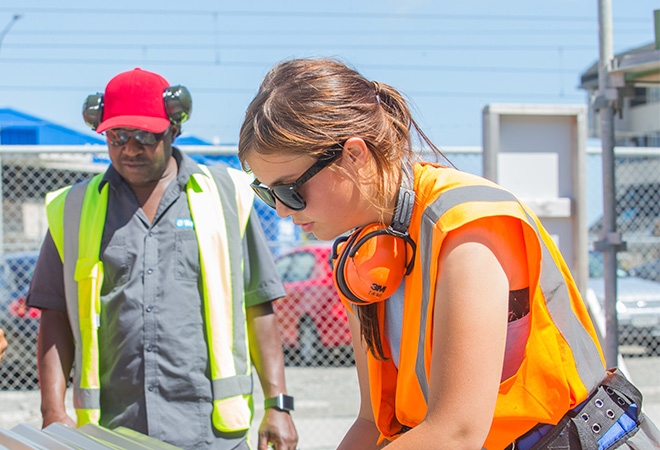
Women in Trades - Characteristics of an effective learning journey
Status
Completed: 28 July 2021
Project Details
The Women in Trades research sought to answer three questions:
- What are the characteristics of an effective learning journey for women entering trades?
- How do employers influence the participation and success of women in trades?
- What are the benchmarks against which progress in the participation and success of women in trades can be measured?
A three-year project, jointly commissioned by the Ministry for Women and Ako Aotearoa, to increase the participation and success of women in construction and engineering related trades where they are traditionally under-represented. A collaboration of five Industry Training Organisations, Manukau Institute of Technology, industry and educational organisations and secondary schools.
Aims:
The primary aims of the project were to:
- identify the characteristics of an effective learning journey for women entering trades
- use that information to increase the participation and achievement of women in construction and engineering-related trades
- increase equity in the workplace.
Methodology:
The project's methodology included working directly with pre-trade and in-trade women; working with trade employers and working with data to establish benchmarks and measure change.
It included:
- defining problems and/or promotional issues
- developing a plan of action
- completing an action and/or intervention
- completing reflection and analysis of outcomes
- building and disseminating tools, resources or guides for women, employers, educators and leaders in learning and teaching.
A foundation group of organisations was involved in the research project led by the Building and Construction Industry Training Organisation (BCITO); Competenz; Connexis and the Motor Industry Training Organisation (MITO); Skills; Auckland Māori and Pasifika Trades Training (MPTT); the Manukau Institute of Technology (MIT); The Southern Initiative Māori and Pasifika Trades Training; Kelston Girls’ College; and the National Association of Women in Construction (NAWIC).
Team
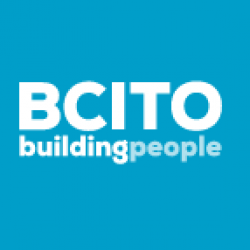
Mark Williams
Project Leader
Building and Construction Industry Training Organisation (BCITO)
Greg Durkin
BCITO
Loretta Garrow
BCITO
Erica Cumming
BCITO
Samantha McNaughton
Competenz
Kaarin Gaukrodger
Connexis
Taniya Scott
Connexis
Michelle Crompton
MITO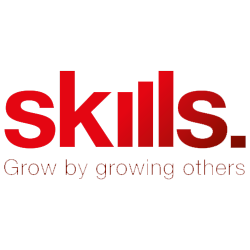
Arlene Galvez
Skills
Michael Ross
Industry Training Federation
Paul Hollings
Manakau Institute of Technology (MIT)
Sophie Czurajewski-Sweeney
MIT
Norm McKenzie
The Southern Initiative Māori and Pasifika Trades Training – Auckland City Council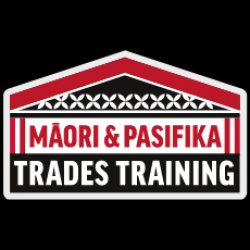
Sam Sefuiva
Auckland Māori and Pasifika Trades Training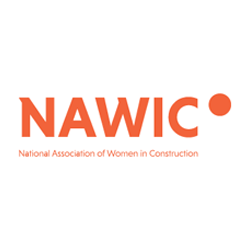
Jenny Parker
National Association of Women in ConstructionKylie Traffard
Contract researcher
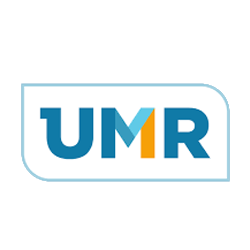
Marc Elliot
Contract Researcher
UMR
Adam Barker
Contract Researcher
ScarlattiStatus
Funding
$535,000.00 (excl GST)
Key Findings
The perspective of successful women in trades
The interviews we had were with 35 successful women in trades. They identified four factors that influenced their workplace success:
- Workplace environment: positive, supportive, focus on learning and progression
- Work tasks: customer focus, working with a product they enjoyed
- Nature of the job: physical opportunities, problem solving, collaboration
- Personality: ability to manage negativity, lifelong learning, attitude towards working in a male dominated environment
The women described five main barriers to entering and working in the trades:
- Lack of knowledge about the opportunities within the trades.
- Lack of work experience.
- Finding employers willing to employ women.
- Male-dominated culture of the trades.
- Lack of support for women in trades.
Employers' perspectives
Feedback from 565 employers described the greatest strengths women brought to the trades as being attention to detail, being easier on tools/machinery and softening workplace behaviours.
- Companies with female employers or women in decision making roles were twice as likely to employ women in trades.
- Companies with over 20 staff were three times more likely to employ women in trades.
What can employers do to attract more women tradespeople?
- Broaden the base of people you talk to when looking for employees.
- Advertise positions online, open up the pool of people who can work for you.
- Offer flexible working arrangements as they work for everybody. Common options include:
- part-time hours
- staggered hours where staff have different start, break and finish times
- flexi-time where staff have the freedom to work in the way they choose outside a set core of hours determined by the employer.
- Build partnerships with education providers, e.g. Gateway, pre-trade and offer work experience.
Key Recommendations
This document provides an overview of the three projects.
- 15 October 2019
This document unpacks the learning and career journey of 35 women who have succeeded in the trades and what we can learn from their experiences.
- 15 October 2019
This documents analyses the feedback from a balanced mix of 565 employers who have or have not employed women.
- 15 October 2019
The personas depict collective characteristics of successful women in trades grouped into seven personas of women from part two and two employer personas from part three.
- 15 October 2019
The final output from the Women in Trades project led by BCITO for Ako Aotearoa.
- 11 June 2021
Tools, resources and ideas for decision-makers to support the participation and success of women in trades where they have historically been under represented.
- 11 December 2020
Tools, resources and ideas for employers to support the participation and success of women in trades.
- 11 December 2020
Tools, resources and ideas for providers to support the participation and success of women in trades where they have historically been under represented.
- 11 December 2020
Tools, resources and ideas to support your participation and success as a woman in trades.
- 11 December 2020
This is an additional resource developed by Ministry for Women.
This document provides information about how you can support women to enter the trades.
- 23 April 2021
This is an additional resource developed by Ministry for Women.
This booklet provides some suggestions for hiring women apprentices. New Zealand’s construction industry has a skilled labour shortage and the COVID-19 pandemic is likely to impact that shortage. To meet this demand it’s helpful to cast the net wider and look past the usual ‘go-to’ groups when hiring.
- 23 April 2021
This is an additional resource developed by Ministry for Women.
This booklet explores how you can get into the trades sector and includes benefits and opportunities.
- 23 April 2021